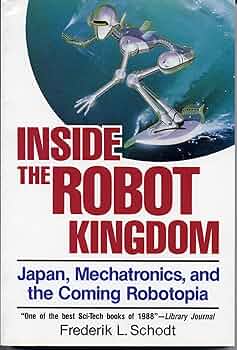
Eyck Freymann: How to Break China’s Minerals Chokehold
Why the allies need a multilateral commercial stockpile This essay is based on a Hoover History Lab working paper, co-authored with Joshua Stinson, William Norris,…
Thought Leader: Eyck Freymann

This piece is by WWSG exclusive thought leader, Niall Ferguson.
I have only intermittently kept a diary, though this week I am beginning in earnest. And I have never before gone on a road trip with a kilt. The reason was an invitation to be recognized as a Distinguished Citizen by the Chicago Scots, a venerable St. Andrew’s Society that traces its roots back to 1845.
I had not previously been aware of the important role played by Scottish immigrants in the building of Chicago—as well as its rebuilding after the Great Fire of 1871. At that time, my native Glasgow was approaching its apogee as the Second City if the British Empire. In the wake of the Chicago conflagration, the mayor of Glasgow wrote to his counterpart in Illinois to offer assistance with reconstruction.
The principal function of the St. Andrew’s Society was to ensure that no member of the Scottish community ended their lives in abject poverty. Throughout its history, the society has therefore maintained a well-funded old folks’ home. The tradition is in good hands. Gus Noble and Charlie Gonzalez welcomed me to the Windy City with properly Caledonian warmth and I had the added pleasure of being interviewed by my old friend, the distinctly Irish Niamh King, once the driving force at the Chicago Council on Global Affairs.
It must be admitted that both Chicago and Glasgow have seen better days. Yet the Scottish bourgeoisie in both cities do their best to maintain the spirit of the old voluntary associations that were once the bedrock of civic life.
I encountered the same, familiar good cheer last week when I delivered the Dallachy Lecture at my old school, the Glasgow Academy. My theme, inspired by the subtitle of Walter Scott’s Waverley—“’Tis Sixty Years Since”—was that if Scotland could go from being the Afghanistan of Europe in the 1740s to being the cradle of the Enlightenment just six decades later, then a similar transformation must be at least conceivable today.
When Adam Smith published The Wealth of Nations in 1776, Scotland was probably the fastest-growing economy there had ever been. Imperial China, by comparison, had long been in what Smith called “the stationary state.” In our time, the roles have been reversed. While China has achieved an even more spectacular Industrial Revolution than Scotland’s, the term “stationary state” now perfectly describes my native land.
It is time now to acknowledge what some of us always foresaw: that devolution has been a disastrous failure. By handing the levers of domestic policy to the Scottish National Party, the fateful decision to grant Scotland what used to be called “home rule” has resulted in higher taxation and even higher public spending, but markedly worse outcomes than in England in education, public health, and much else.
My kilt and I flew from Chicago to Boston, from whence I was driven to Amherst College in deepest, bleakest Massachusetts. It was my first visit to the venerable liberal arts college, eminent alumni of which have included the economist Joseph Stiglitz and Edmund Phelps, the sociologist Talcott Parsons, the historian H. Stuart Hughes—and President Calvin Coolidge.
For many years, Amherst has been a byword for academic left-liberalism that fancies itself progressive, so I was rather filled with dread. The professor who had invited me, Lawrence Douglas, is a regular writer for The Guardian. His opening question made my heart sink. “Niall Ferguson, your most recent book has the subtitle ‘The Politics of Catastrophe.’ Was the election result of November 5 a catastrophe?”
Expecting the bread rolls and brickbats to start flying, I replied that the real political catastrophe had been the last four years. To my surprise, the audience listened politely and at times even enthusiastically and the discussion went rather well. Even more surprisingly, the young man who leads the Amherst Conservative Society was not heckled when he posed a question.
I have observed a similar change of atmosphere on other U.S. campuses. Unlike eight years ago, when academia collectively lost its mind after Donald Trump’s first election victory, this time around there has been a rather swift passage through the five stages of grief. Is this because liberal colleges are genuinely fearful of what the second Trump administration may do to them?
Or is it because many professors and students are thoroughly sick of the antics of the woke activists? My hunch is that the many academics in America who are Jews got the fright of their lives after October 7 last year, when they suddenly realized just how much antisemitism had spread into their world, in the various guises of Marxism and Islamism.
While some academics—step forward Yale’s Timothy Snyder—will continue to equate Trump and Hitler, a great many others now understand where the true heirs of Hitler are located. It is not at Mar-a-Lago.
Speaking of the southern White House at Palm Beach, I made my first trip there on Tuesday, to attend a fundraising dinner for Prager University. If any further proof were needed that Donald Trump is in fact an ardent philosemite, here it was. Having just won the U.S. presidency for the second time, after a four-year interregnum during which his political enemies tried their utmost to destroy him, Trump had no need to address the Prager crowd. But address us he did, paying tribute to Dennis Prager, the founder of PragerU, who recently suffered a near-fatal accident.
Victory and vindication—perhaps above all his miraculous survival of the assassination attempt of July 13—have changed Trump. He had an almost beatific air, basking in the crowd’s applause, beaming, even glowing, in the Florida evening air. He has lost some weight. He looked entirely at ease in the afterglow of his biggest win. And he spoke with a tone of confidence and equanimity I have rarely heard from him.
At dinner, I found myself sitting next to the psychologist Gad Saad, author of The Captive Mind, one of that group of courageous scholars who over the past ten years have stood up against the relentless assault on academic freedom and standards that has swept the English-speaking world.
When they played “Y.M.C.A.”—an unlikely theme-tune of Trump’s 2024 campaign—Gad and I did the only thing we could possibly have done: we got up and did the Trump dance. Fortunately for me, the moves involved are mostly made by the dancer’s forearms. It was not so much morning in Ronald Reagan’s America as party time in Donald Trump’s America. And those of who have heartily detested just about every aspect of the politics of the past four years were entitled to a wee jig.
PragerU is not, technically, a university, but it has been doing a superb job of providing what might be called counter-revolutionary educational content since it was founded back in 2011. After dinner on Tuesday, Glenn Beck illustrated the profound importance of traditional historical education with a masterclass based around items from his impressive collection of historical artefacts. I just wish every high schooler in the country could hear him explain the significance of Jefferson’s “original rough draught” of the Declaration of Independence, which accused George III of having:
waged cruel war against human nature itself, violating its most sacred rights of life & liberty in the persons of a distant people who never offended him, captivating & carrying them into slavery in another hemisphere, or to incur miserable death in their transportation thither. this piratical warfare, the opprobrium of infidel powers, is the warfare of the christian king of Great Britain. determined to keep open a market where MEN should be bought & sold, he has prostituted his negative for suppressing every legislative attempt to prohibit or to restrain this execrable commerce …
Those lines were of course struck out in deference to the wishes of the majority of slaveowners in Congress. But, as Glenn said, they make it clear that the most impressive among them, Jefferson himself, understood from the outset the incompatibility between the principles of the American Revolution and the “peculiar institution” of slavery.
Eyck Freymann: How to Break China’s Minerals Chokehold
Why the allies need a multilateral commercial stockpile This essay is based on a Hoover History Lab working paper, co-authored with Joshua Stinson, William Norris,…
Thought Leader: Eyck Freymann
Chris Miller: Robotics Manufacturing: The Rise of Japan
“To the Americans, a robot is a computer attached to a mechanism. To Japanese, a robot is a mechanism attached to a computer.” The future…
Thought Leader: Chris Miller
Dr. Sanjay Gupta: A New Understanding of Parkinson’s Disease
Parkinson’s disease, a progressive movement disorder whose hallmark is damage to the dopamine-producing neurons in the brain, afflicts almost 12 million people worldwide. And the…
Thought Leader: Sanjay Gupta

